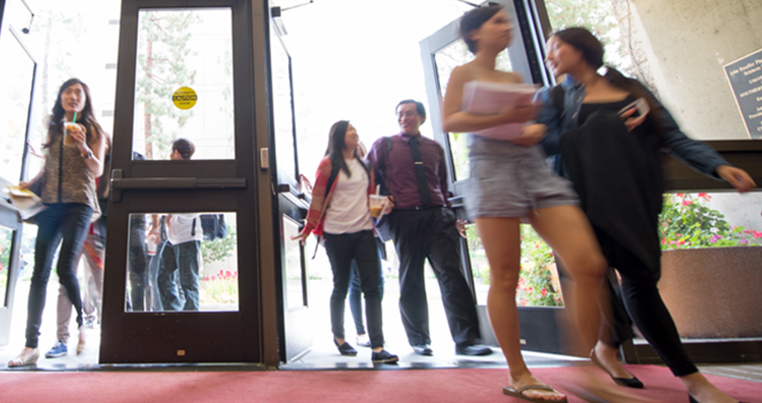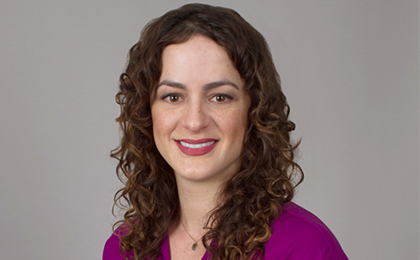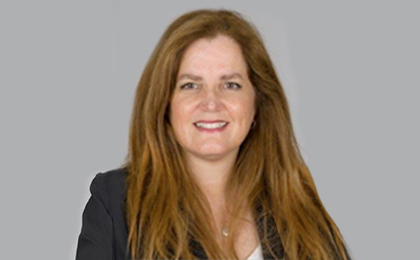Wellness Program

Why Wellness?
At the same time, it can feel challenging or even overwhelming to cope with the new demands, long hours and heavy study load. For many, medical school requires a level of independence that they have never experienced before. Coping skills utilized in undergraduate years may no longer be sufficient. Sometimes students believe that the only way to excel is to cut out all activities that take time away from studying, such as sufficient sleep, exercise, socializing, hobbies and simply relaxing – even if these activities are crucial to maintaining health and joy.
What makes us different?
At the Keck School of Medicine of USC, we believe that a physician is only able to care for others, if they care for themselves first. We acknowledge the stress inherent in medical school and encourage a culture of compassion for self and others, with an emphasis on work-life balance. Our mission is that our array of wellness resources not only helps students thrive throughout their four years of medical school but inspires them to become champions of physician well-being in their future endeavors.
Wellness Mission Statement
- The Keck School becomes a leader in the nation in student wellness by providing a safe, humane and compassionate medical education experience that puts students first.
- The Keck School provides a cutting-edge, evidence-based, holistic wellness curriculum, known as Foundations of Physician Resilience, which instills lifelong skills in self-care, self-awareness, positive thinking, integrative health of mind and body, mindfulness and compassion.
- The Keck School strives to produce excellent future physicians by encouraging students to value taking care of themselves first.
- The Keck School acknowledges historical problems in the field of medicine, including expectations of perfection, the culture of competition, mistreatment of students, higher rates of depression and anxiety in medical communities and stigma in seeking mental health treatment.
- The Keck School sets standards for a new culture of vulnerability, kindness, diversity and open communication, by cultivating change from both the top down and bottom up.
Foundations of Physician Resilience Curriculum
The Keck School offers a required curricular thread, containing 30 hours of content in Years 1-3, called Foundations of Physician Resilience. This content is integrated into the curriculum, so it is not a burden on students to attend. Competencies include:
- Competency 1: The student understands the importance of medical student self-care, as it relates to academic performance, and physician self-care, as it relates to patient care and safety.
- Competency 2: The student demonstrates a commitment to their health and well-being by tending to their physical, emotional, mental, spiritual and social well-being and utilizing personalized, ongoing strategies that promote and maintain personal resiliency.
- Competency 3: The student demonstrates the capacity to confront competing demands or adversity and to recover and reflect.
- Competency 4: The student demonstrates self-awareness of one’s own well-being status and takes action when levels of stress impact their mood, professional development and care of patients or colleagues in a negative manner.
- Competency 5: The student fosters a learning environment that recognizes, supports and responds effectively to colleagues in need of assistance.
- Competency 6: The student demonstrates understanding of and sensitivity toward areas of health known to be at risk for the medical student, resident and physician populations.

Chantal Young, PhD
Director of Wellness
Phone: (323) 442-1643
Email: chantaly@usc.edu

Maria Juliani, PhD
Assistant Director of Wellness
Phone: (323) 442-0437 | (213) 821-4504
Email: mjuliani@usc.edu
Please log into the student portal to access all of the services available to Keck School students.
Current Wellness Resources
Mental Health
- The Director of Wellness and Assistant Director of Wellness, two in-house clinical psychologists, are available for mental health appointments.
- Free confidential therapy and psychiatric services at the student health center are included in the student health fee. 24/7, after hours, crisis services are available. The Assistant Director of Wellness provides increased access to short-term psychotherapy, in addition to the staff of counselors at the student health center.
- Keck Checks, 15-minute mental health check-ins with a psychologist, are offered for each first-year student. Additional 30-minute Keck Checks are offered in Year 2 and Year 3.
- The Keck Mental Health Survey, a yearly online, comprehensive and anonymous self-screening mental health survey, is available for all students.
- Mental Health Awareness Month occurs in March, with a “Mental Health Among Us” panel, where faculty and student panelists share their personal journeys with mental illness and seeking treatment.
- Wellness Hours on clerkships are supportive and confidential one-hour groups, led by a psychologist, for clerkship students to connect with each other and discuss challenging experiences as they begin clinical work.
- During mandatory Wellness Days on clerkships, students get one full day off per six-week clerkship and a half day off per four-week clerkship, to use for wellness as they see fit. Students are required to take their Wellness Days.
- Mindfulness meditation is a part of the culture at USC, reflected in the larger Mindfulness Initiative at USC. Specific resources for medical students include:
- Free drop-in class every Friday
- Free intensive six-week class series available at the student health center; online version also available
- Free intensive eight-week “Mindful Self-Compassion” (MSC) course offered on Saturdays, once per semester
- “Mindfulness-Based Stress Reduction” (MBSR) elective course offered in Year 2
- Free meditation application for use at home
- Occupational Therapy Lifestyle Redesign Program, a professional service covered by most student insurance plans that creates individualized behavioral plans for students to help improve time management, self-care and work-life balance.
- Deans on call service 24/7 allows students to reach a dean any time they need to talk.
- Key faculty members receive regular updates, regarding the state of medical student well-being, and sensitivity training on how to identify and support students in emotional distress.
- A Wellness Task Force, comprised of the wellness directors, key faculty members and student representatives, meets quarterly, with the aim of taking a fresh look at policies, procedures, curriculum and “hidden curriculum” that may impact a student’s well-being.
Social & Community Health
- Elected Student Wellness Representatives (two per class) are given a yearly budget to plan and execute social events that suit every personality, with the goal of enhancing connection and community. Sample events have included:
- A pumpkin carving contest at Halloween; a gingerbread house contest during winter holidays
- “Speed friending,” where students who do not know one another are provided with a subsidized coffee date or dinner to get to know each other
- A time capsule art project, where Year 1 students write letters to themselves to be opened at graduation
- A fitness team, where students who do not know one another are put into teams and track their workouts
- Keck Peer Support (board of four) runs a confidential, student-run group that trains students to become peer supporters, who provide one-on-one peer support, discussion groups on sensitive topics, study breaks with snacks and advice, and a monthly email answering anonymous, candid student questions. Sample Keck Peer Support events have included:
- “Pomodoro” group study sessions, infused with mindfulness and healthy snacks
- Watercolor paintings, with coffee and bagels
- PostSecret events, during which students share their innermost secrets on anonymous postcards, which are then displayed in an art gallery
- A discussion group for students with illness anxiety
- Partners in Medicine student interest group is held for students with long-term partners, spouses and/or children to connect and build community.
- “Detour” student interest group is held for students who take nontraditional paths to graduation, such as taking time off for academic, personal or medical reasons.
- Schwartz Rounds held quarterly, are available for all hospital staff to openly and honestly discuss emotional issues in caring for patients and families.
Physical Health
- HSC Recreation Center, a full-service gym available free of charge with student health fee
- Free on-campus yoga classes, twice per week
- Free on-campus boot camp workout classes, once per week
- Free “bike desks” and standing desks available for checkout, to exercise while studying
- Free live cooking workshops, where students learn basic cooking skills and how to eat
Spiritual Health
- USC Office Of Religious and Spiritual Life offers a community of spiritual reflection, open to students of all faiths or no faith.
- Student communities of various denominations host regular gatherings.
Financial Health
- Workshops are offered during Transition week and Intersession II to increase financial literacy and address the impact of indebtedness on lifestyle and choice of specialty.
- Free one-on-one financial counseling
Academic Health
- The Office of Academic Support Services provides specialized one-on-one academic coaching and peer-led review sessions.
- Years 1-2: Learning Communities. All first- and second-year students are placed in small learning communities to enhance long-term connection, comfort and trust. Faculty mentors meet periodically with student groups to discuss a variety of professional and personal wellness topics.
- Year 3: Track Mentor Program. Students receive long-term, supportive contact with a faculty member and upperclassmen peer mentors, in the form of small group discussions, approximately once per month throughout the third year. The nonevaluative, mentoring component of the relationship is emphasized.